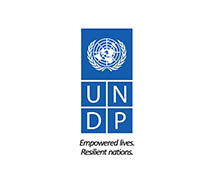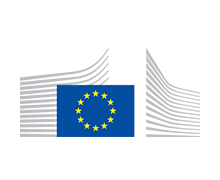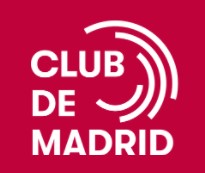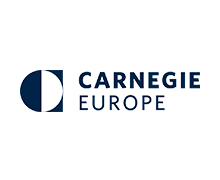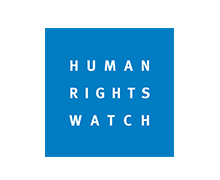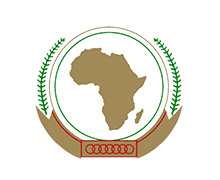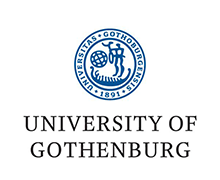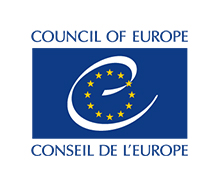About International IDEA
International IDEA at a glance
Advancing democracy worldwide, as a universal human aspiration and an enabler of sustainable development, through support to the building, strengthening and safeguarding of democratic political institutions and processes at all levels.
Download our one-pager and discover facts about our many areas of work.
Vision, Mission and Mandate
Advancing democracy worldwide, as a universal human aspiration and an enabler of sustainable development, through support to the building, strengthening and safeguarding of democratic political institutions and processes at all levels.
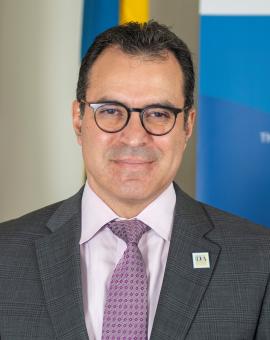
What we do
We develop, share and enable the use of comparative knowledge, assist in democratic reform, and influence policies and politics, focusing on six workstreams:
- Electoral Processes
- Constitution-Building
- Democracy Assessment
- Political Participation and Representation
- Climate Change and Democracy
- Digitalization and Democracy
We also address the following issues as they relate to democracy:
How we work
International IDEA’s working modalities include a virtuous cycle of four elements: knowledge production, capacity development, advocacy as well as convening of dialogues.
History and Milestones
Kevin Casas-Zamora appointed to second, 5-year term as International IDEA’s Secretary-General.
Bedrocks of democracy under threat across the globe
International IDEA launch the Myanmar Youth Democracy Academy Training course
International IDEA & Switzerland reaffirm their partnership for democracy with four-year, 3.3-million-euro agreement
International IDEA and the African Union Commission Renew Their Partnership and Commitment to Strengthen Democratic Governance in Africa
International IDEA launched two new knowledge products under the Global State of Democracy Initiative: GSoD 2022 and Democracy Tracker.
International IDEA tracks Summit for Democracy commitments and launches resources portal.
Launch of Women's Political Participation: Africa Barometer 2021 Report, a resource to assess progress over time in Women's Political Participation.
To recognize its 25 years of supporting sustainable democracy worldwide, the International IDEA organized a global virtual conference focusing on defending, strengthening, and revitalizing democracy.
International IDEA launches the regional declaration titled "Let Us Take Care of Democracy Lest it Fall Victim to the Pandemic".
"A Call to Defend Democracy" was initiated by International IDEA to alert about governments that are using the COVID-19 pandemic to tighten their grip on power.
International IDEA presented the ‘Global Overview of COVID-19 Impacts on Elections.’
Tunisia was the first Member State from the North African and Arab region to join the Institute.
International IDEA launched a new Political Finance Design Tool to increase political-finance transparency.
The launch of The Global State of Democracy 2019 report, packaged as a "global health check of democracy," influenced the global democracy debate.
Kevin Casas-Zamora is appointed as the new Secretary-General of International IDEA.
The Institute presented a Democracy Assessment in Ukraine using a long-standing State of Local Democracy assessment framework.
Luxembourg joined International IDEA as the 32nd Member State of the organization when the Council of Member States met in Stockholm.
International IDEA was awarded with a recognition plaque for its work in support of the Departmental Legislative Assembly (ALD) of Beni in Bolivia.
Panama joined International IDEA bringing the total number of Member States in the intergovernmental organization to 31.
ACE Electoral Knowledge Network celebrates 20 years of achievements as world’s largest online source of electoral knowledge for EMBs.
Launch of the Inter-Regional Report on Gender Equality and Political Empowerment of Women.
On the auspices of the 75th anniversary of the establishment of democracy in Costa Rica, the Supreme Electoral Tribunal honored International IDEA with the "Cátedra a la Democracia Award."
For the first time, International IDEA launched the "The Global State of Democracy" publication in Stockholm.
International IDEA celebrated a decade of work in Bolivia, satisfying the mission of supporting democratic processes and institutions.
The Embassy of Switzerland in Sweden, the Swiss Democracy Foundation and International IDEA presented the Global Passport to Modern Direct Democracy.
The first class of International IDEA's Youth Democracy Academy graduated in a ceremony attended by representatives of organizations who hosted the alumni as interns.
The film LGBTI Political Inclusion Journeys released by International IDEA, follows the trajectories of Lesbian, Gay, Bisexual, Transgender, and Intersex (LGBTI) groups in Malawi and Nepal.
In Paraguay, International IDEA has led a multi-stakeholder set of initiatives aimed at strengthening gender equality and youth participation in politics and elections.
Following the defeat of long-term ruler of the Gambia Yahya Jammeh, International IDEA became one of the privileged partners working with the newly elected government to put in place a multifaceted post-authoritarian transition.
Benin joined as a Member State bringing to our Institute its support.
The Annual Democracy Forum 2016 was celebrated in partnership with the Chair of the Council of Member States, Mongolia, and the Non-Aligned Movement Centre for South-South Technical Cooperation.
International IDEA conducted a three-day training on the state of democracy assessment framework to a wide variety of government and civil society organizations in Thimpu, Bhutan.
Brazil's accession to International IDEA Member States enhanced the organization's membership and has been strategic for deepening engagement in the Lusophone community across the world.
Launch of the Master in Electoral Policy and Administration (MEPA), hosted by Sant'Anna School of Advanced Studies in Pisa, Italy.
The consensus emerged at our workshop "From paper to lived reality: Implementing women's constitutional rights", held in Nepal, was clear: constitutional guarantees are crucial for gender equality.
India and Sweden reaffirm commitment to International IDEA in a joint statement, signed by Stefan Löfven and Narendra Modi.
International IDEA interviewed national leaders on the role they played in the transition to democracy in their countries: Brazil, Chile, Ghana, Indonesia, Mexico, the Philippines, Poland, South Africa, and Spain.
The stories of Indonesia and Nepal transitions to democracy are connected to International IDEA influence.
Launch of the publication The role of organized crime in Latin American politics.
Yves Leterme, former Prime Minister of Belgium, is appointed new Secretary-General of International IDEA.
For over a decade, International IDEA has been a leading global force in the area of political finance and political parties law.
Using a citizen-led assessment framework developed by International IDEA, Bolivia and Malawi have improved democratic accountability in service delivery.
Launch of "A practical guide to constitution building", to respond to the knowledge needs of politicians, policymakers and practitioners involved in constitution building.
International IDEA focused on the Asia Pacific region to reinforce longstanding democracies such as India, Japan, Australia and New Zealand.
More than 29 years after the end of the Duvalier regime, Haiti’s process of democratic transition was progressing slowly, and we worked on the field to stimulate this process.
The web resource Constitutionnet.org further enhances International IDEA’s pool of online knowledge.
The Inter-Regional Dialogue on Democracy (IRDD) is a platform for engagement among regional organizations on democracy, where International IDEA´s facilitated it and held its Secretariat.
The Botswana Independent Electoral Commission and International IDEA worked together to host the 5th Global Electoral Organization Conference in Gaborone.
The Dominican Republic and Mongolia joined as new Member States in 2011.
The Global Commission on Elections, Democracy and Security, jointly established by the Kofi Annan Foundation and International IDEA, to promote and protect the integrity of the electoral process.
International IDEA’s engagement with the EU reached a new level after the EU Council adopted specific conclusions on democracy support and a corresponding agenda for action.
In Bolivia’s 2009 elections, women won 47 per cent of all Senate seats—a direct result of the introduction of the Temporary Electoral Law securing gender equality and parity, supported by International IDEA.
The Member States of International IDEA welcomed Ghana as a new member.
International IDEA contributed to the preparatory phase of Bolivia’s constitutional process by organizing an international seminar on experiences of constituent processes throughout the world.
Vidar Helgesen, former Deputy Foreign Minister of Norway, is appointed Secretary-General of International IDEA.
In 2006 Switzerland joined International IDEA and quickly became a critical partner to International IDEA in our shared mission to strengthen peaceful, inclusive democracy for all.
After mass protests, King Gyanendra of Nepal was forced to relinquish direct rule and establish multi-party government in the country and International IDEA start supporting constitution building process in Nepal.
Mongolia chose International IDEA´s State of Democracy (SoD) assessment framework because it offered a practical template for assessing and establishing progress towards democracy.
Cape Verde and Peru joined International IDEA in 2004.
International IDEA was granted Observer Status at the United Nations, giving it privileged access to a number of policy forums in which democracy-related issues are discussed.
Mexico and Uruguay joined as Member States of International IDEA.
Germany joined to International IDEA as Member State bringing its experience and support on our mission.
Karen Fogg, a former Head of European Union Delegation in Ankara, is appointed as the second Secretary-General of International IDEA.
International IDEA has been collecting comparative data on electoral processes and democracy related topics since its establishment in 1995.
The International IDEA Handbook "Democracy at the Local Level" was developed in response to the pressures facing cities attempting to deal with the social issues due to globalization, growing urbanization and human migration.
A group of electoral experts from around the world met in Canberra, Australia, to work out the structure and content of a short capacity-building programme for electoral administrators.
Mauritius joined as International IDEA's 18th Member State.
The Founding Conference of International IDEA took place on 27–28 February 1995 and involved 14 founding states.
